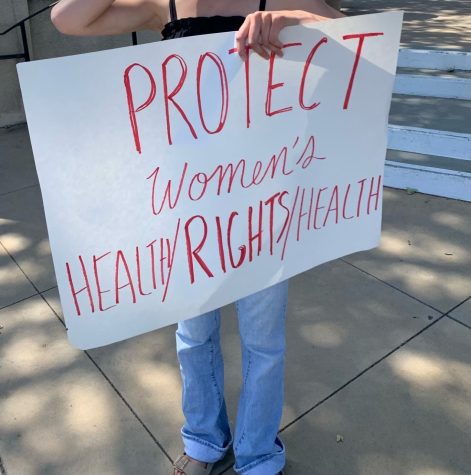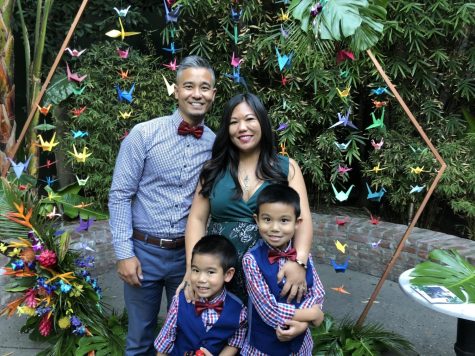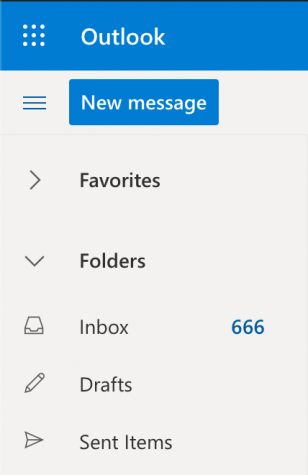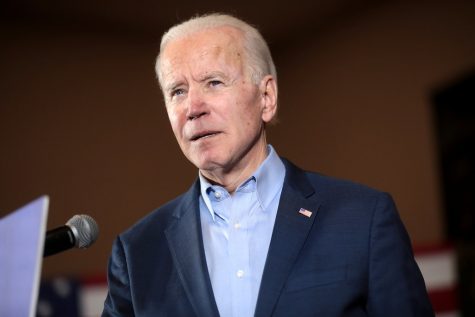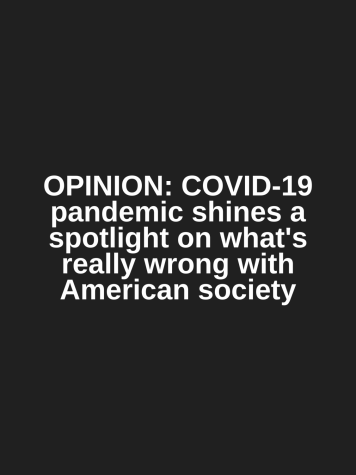CUSD board meeting violates policy and silences student voices
“Inspiring Students of Today, Leaders of Tomorrow!” the bold phrase written right underneath the “Claremont Unified School District” header of each email sent to CHS families reads. However, in light of changes made to the District’s grading policy during this unprecedented time, CUSD has failed their promise to inspire their students, leaving many infuriated and disheartened. Censoring student voices, failing to publicly acknowledge or address a petition that has received as many signatures as students attending CHS, violating their own district board meeting bylaws — what’s next in CUSD’s efforts to censor student voices and community concerns regarding mandatory work?
A petition launched on Tuesday, April 14 by CHS senior Dirk Morken advocating for CHS to revert back to its optional academic work policy, rather than moving to required work and standard grading (going into effect on Monday, April 20), now has over 2,500 signatures. With the overwhelming support of students, parents, teachers, and community members backing the petition, it is appalling that CUSD has failed to listen to the concerns and hardships of many of its own community members and students. However, before addressing the District’s lack of acknowledgement towards these concerns, one must first understand why mandatory grading is unacceptable in the first place.
Simply put, CUSD’s mandatory grading policy sprouts from roots of ignorance and privilege. Initially, it seemed as if the District’s greatest concern during this time was getting the proper technology to each student who did not have access to it at home. While of course this should be a priority and concern of the District, once each student received adequate technology, it seemed as if every other concern went out the window. Some of these concerns include (but are not limited to) the mental health and well-being of students, the ability of students to complete academic work in home environments, and the diverse range of household and financial situations families face during this time. That is to say that many Claremont students have much more to worry about at the moment than completing every digital worksheet or math problem in fear that their grade will drop if they do not. The safety, well-being, and health of students and their families should be the top priority.
Many students may be in homes with unsupportive or abusive caregivers, or in dire situations where many family members have been laid off, leading to mental health and financial struggles. The vast spectrum of home environments students are currently in brings an equally vast spectrum of added anxieties, mental health challenges, and responsibilities. Due to these circumstances, many students are genuinely unable to complete all academic assignments or will soon be completing every last assignment at the cost of their mental health.
CUSD attempts to acknowledge this concern, stating in their most recent update that they “ask any . . . [students] that are having difficulty managing class work to contact [their] teacher, discuss [their] individual circumstances, and develop a plan that will work for [their] family.” However, the crucial information missing here is that not all students feel comfortable discussing their personal hardships with their teachers, nor should they be forced to in order to gain flexibility towards academic assignments. A study conducted by education researcher Dr. Russell Quaglia involving 414,000 students (grades 6-12) within 569 schools in 32 states from various socioeconomic backgrounds found that a mere 48 percent of students felt teachers care about them as individuals. This implies that the 52 percent of students who do not feel like teachers care, or simply may not be comfortable disclosing their personal hardships and inability to do academic work, are left at a loss.
All in all, the mandatory academic work policy CUSD is implementing has left many students with added anxiety, stress, and unsettling emotions during the middle of a global pandemic. This action is simply unacceptable. However, even more infuriating is the happenings of a public CUSD teleconference that occured on the night of April 16.
During the Zoom meeting, several student attendees turned on their cameras to hold up notes expressing their concerns regarding the switch to a mandatory schoolwork policy. This was the only means of public communication during the call, as all of those who were not members of the school board were automatically muted. Their notes showcased messages such as, “Prioritize the mental health of students,” and, “Stop ignoring the voices of the people you represent!”
Towards the second half of the conference, students holding up signs or showing disapproval of the District’s decision by shaking their heads or rolling their eyes were either removed from the call or had their ability to turn on their webcams restricted by the host (which was presumably one of the school board members). Later on in the meeting, all attendees had their videos restricted. This action was especially inappropriate because the notes attendees held up cannot be reasonably seen as vulgar or distracting to the meeting, as all of them voiced very relevant concerns using the only possible form of live communication available between the public and school board members. This clearly indicated an effort to censor student opinions and allow board members to carry on comfortably with their meeting without having to worry about any form of opposition coming from a student’s perspective.
To top it all off, throughout the entire meeting, there was no discussion addressing student, parent, or teacher concerns regarding the mandatory work policy, with the exception of the careless reading of one parent email expressing concern, to which no board discussion followed. It is sad and disappointing that even when brought to light, this issue could not elicit a single constructive response. In addition, not a single student concern was heard or discussed in the meeting, including that of Bailey Lynch or Alina Nuñez, the District’s two student board members.
When the Zoom call ended, many of the students in attendance were left with the unsatisfied feeling that the call had been mishandled and a vague inclination that the Board’s behavior — kicking individual students from the teleconference, muting all students (which made live public comments impossible), and eventually cutting video capabilities for students — had to have violated some sort of guideline. This turns out to be more than just a vague suspicion of inappropriate conduct, as during the call, the school board violated their own bylaws governing school board meetings.
Let us start with what was suspiciously misrepresented. As the call progressed, several students held up signs asking the Board to discuss the petition for non-mandatory work, which had been put forward by Morken and had received more than 2,500 signatures. Signs were a necessary method of communication because no student could speak verbally on the call. No live public comments were accepted when they are usually a required part of any board meeting’s agenda. School board members did not directly recognize these requests, but said as a side note clearly intended to address student viewers that “the school board cannot discuss items which have not been added to the agenda at least 72 hours in advance.”
This is partially true — the 1953 Brown act does require that topics on the agendas of public governing bodies like a school board are provided to members ahead of time, and the school board’s bylaws do say agenda items have to be added 72 hours in advance. But the statement made by the school board is incorrect. The Board’s bylaws regarding Education Code 35145.5 and Government Code 54954.3 state that “the agenda for a regular board meeting shall also provide members of the public an opportunity to provide comment on matters which are not on the agenda but which are within the subject matter jurisdiction on the Board.” The District’s policy regarding mandatory work and letter grading is under the jurisdiction of the Board so it and the petition should have been up for public comments regardless of its absence from the agenda. In violation of educational code, the Board did not provide any time for public comments on non-agenda items, which was clearly desired by the members of the public who were present.
Not only that, but the Board also violated their own bylaws by not allowing for any comments from the public on items which were on the agenda. The Board’s bylaws regarding Government Code 54954.3 also state that “the agenda shall provide members of the public the opportunity to address the Board on any agenda item before or during the Board’s consideration of the item. However, the agenda need not provide an opportunity for public comment when the agenda item has previously been considered at an open meeting of a committee comprised exclusively of Board members, provided that members of the public were afforded an opportunity to comment on the item at that meeting, and that the item has not been substantially changed since the committee considered it.” The Board’s agenda involved items like reading new parent emails regarding the policy, which had clearly not been up for public comments previously, meaning they were supposed to take public questions and comments on these items.
The Board will claim they fulfilled this obligation by allowing comments to be sent in by the public via email by 4 p.m. the day of the meeting, but this change was not sufficiently publicized, as the only source from which students were able to receive this information was through the CUSD website. Such a dramatic change should have been actively communicated to the community as school board meetings are one of the only opportunities for students to directly address their board representatives. CUSD failed to do so. An inconspicuous brief on a website does not suffice and is still in violation of Government Code 54953, which gives direct guidelines for teleconferences like the one that took place on Zoom the night of April 16. CUSD’s bylaws in regards to Government Code 54953 read, “All teleconference locations shall be accessible to the public. All teleconferenced meetings shall be conducted in a manner that protects the statutory and constitutional rights of the parties or the public appearing before the Board, including the right of the public to address the Board directly at each teleconference location.” Allowing for no comments beyond emails through a seemingly hidden link hours before the meeting starts is in violation of the public’s rights to “directly” address the Board at meetings themselves. As is further stipulated in CUSD’s bylaws on Government Code 54957.9, “Individual speakers shall be allowed three minutes to address the Board on each agenda or non-agenda item. The Board shall limit the total time for public input on each item to 20 minutes. With Board consent, the Board president may increase or decrease the time allowed for public presentation, depending on the topic and the number of persons wishing to be heard.” Considering that the board president did not hold a vote with the Board to shorten this time, up to 20 minutes should have been available for members of the public wishing to comment verbally. Not one second of the meeting was open to a single word of live public comments.
In addition, forcing students to restrict their public comments to emails inevitably reduces the scope and impact of their messages. Live public comments accepted during a meeting allows the public to potentially hear immediate feedback from the Board and leaves a higher possibility of actually discussing the matter on the spot. Emails cannot replace this level of communication.
Many students attempting to be heard with signs were kicked off of the call. While CUSD’s bylaws do give the Board the right to remove members of the public who engage in “disorderly conduct,” nothing of the sort even close to that happened. CHS senior Angelo Thomas was removed for holding a sign that read, “Aren’t the students the entire point of this?” and shaking his head in disagreement, then placing his head in his hands when a board member said that they “were not allowed” to discuss non-agenda items. Neither the sign nor the head shake are at all disruptive in an online meeting, and again, more polite methods of communication like simply asking a question verbally were not possible because all students were muted. As calm as it was, Thomas’ head shake was probably the most aggressive gesture someone was removed for. Some students with signs just asking the Board to address their grading policy were removed permanently for clearly non-disruptive behavior.
This is an explicit abuse of CUSD’s bylaws regarding Government Code 54957.9, which read, “The Board may remove disruptive individuals and order the room cleared if necessary.” If students’ signs had been aggressive or vulgar, it would have been within CUSD’s bylaw rights to remove them from the meeting, but signs asking for speaking privileges and politely requesting a topic to be addressed are far from vulgar, especially considering they were the only possible method of live communication. There is no argument worth considering that these signs and student actions were actually disruptive, especially given the context of CUSD’s bylaws on Government Code 54954.3, which clarify that “the Board shall not prohibit public criticism of its policies, procedures, programs, services, acts or omissions.” The fact that students were forcibly removed from the call displays the Board’s unwillingness to listen to the constituents they are supposed to represent. The actions of our school board at this recent meeting are not only troubling, but in conflict with basic codes governing how entities supposedly representing a public community are supposed to act.
In light of these strange, difficult, and unprecedented times, it is clear Claremont students deserve more. They deserve to be acknowledged by CUSD and not silenced. Claremont students, and the entire Claremont community alike, have been unheard by CUSD, so let us be loud and clear — Claremont students will continue to voice their opinions and fight for what is right despite any effort CUSD puts in to silence them. It is pivotal that the Claremont community stand together during this time in order to give each student equal opportunity to take care of their families and mental health. The Wolfpacket strives to provide an open forum for the Claremont community to discuss issues of local interest and we encourage any board members, district staff, or community members to respond to this article if they wish to clarify or comment on anything.
Letters-to-the-editor can be submitted by emailing [email protected].
CUSD’s board bylaws can be accessed here: http://www.gamutonline.net/district/claremontusd/PolicyCategoryList/2316/9
*This article was temporarily taken down the night of April 18 for around 15 minutes in order to make some updates. This was done by the Wolfpacket and the Wolfpacket only. All rumors claiming that CUSD took down the article are completely false and were spread by those who are not part of our staff.*
(updated April 19, 3:18 p.m.)
Hello there! Our goal is to provide relavent, engaging journalism for readers of all ages. Your donation will support the student journalists of the Wolfpacket at Claremont High School, and will allow us to purchase equipment, print our monthly issues, and enter in journalism competitions. We appreciate your consideration!




